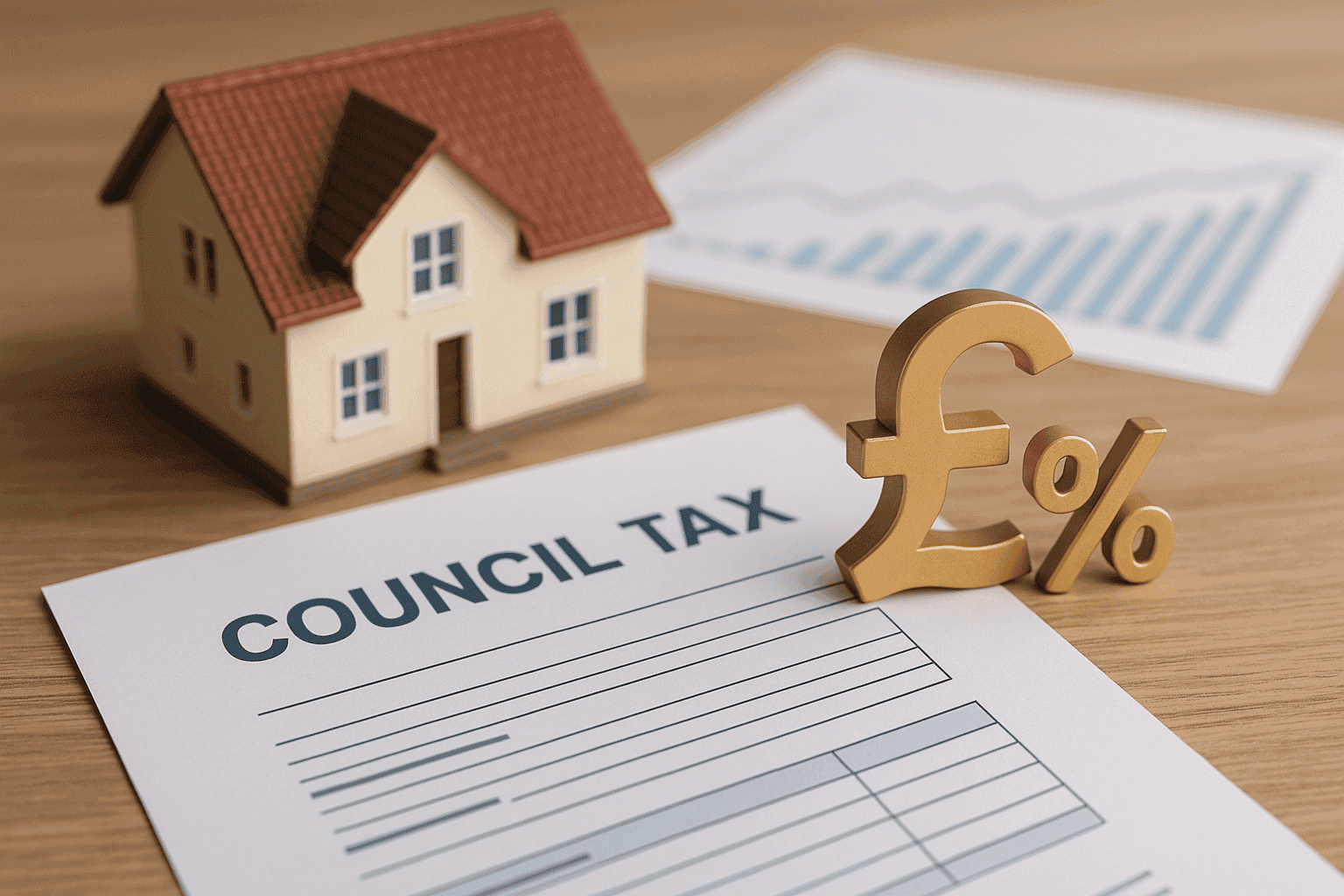Council Tax Discounts: Are You Missing Out on Savings?
Council tax discounts can significantly reduce your yearly payments. Read on to find out who is eligible, how to apply, and some common exemptions in the UK.

Introduction
In the United Kingdom, one of the primary household expenses after rent or a mortgage is the council tax. Perhaps what is lesser known is that a large population of taxpayers contributes more than they should due to non-application of discounts.
From individuals living alone to carers and students, a wide range of council tax discounts and exemptions exist to help ease the burden. However, they remain unheard of to many.
This article explains the main council tax discounts, who qualifies, how to apply, and where to get help. You could be missing out on hundreds of pounds in savings.
An Overview of Council Tax Discounts
Council tax is a fee imposed locally to fund services such as rubbish collection, street lighting, and schools.
Your payment will depend on the council tax band of your property (A–H for England and Scotland and A–I for Wales), but there are households that may be eligible for reductions of 25%, 50%, or even 100%.
Reliefs generally come in the following forms:
- Discounts - such as the 25% offered to single-person households.
- Exemptions - some properties are deemed exempt from paying council tax.
- Council Tax Reduction (CTR) - assistance offered to low-income households.
Here’s how the most common discount works and who can claim it.
Single Person Discount – 25% Off
The single-person discount is the most common discount.
If you are the only adult in a property, you are eligible for a 25% reduction in your payment. It is important for couples who separate or households in which an adult moves out to notify their council so as to have their tax status updated.
Who qualifies?
- Any single adult 18 or older.
- Adults residing with full-time students (because students are not counted for council tax purposes).
- An individual residing with people under 18.
Example: Living alone could save you £450 if your council tax bill is £1,800. Beyond single-person discounts, other groups may qualify for reduced or zero council tax.
Other Common Discounts and Exemptions
Beyond single-person households, other groups may qualify for reduced or zero council tax.
Carers
- For people who provide care for at least 35 hours per week, carers may be disregarded for council tax.
- The person you care for must not be your partner or child under the age of 18.
People with Severe Mental Impairment (SMI)
- People with dementia and similar conditions may be disregarded.
- Requires a doctor’s certificate and proof of qualifying benefits.
Empty And Second Homes
- Discounts may be available for some empty properties.
- Long-term empty homes may be subject to a premium charge by councils, so check local rules.
If you are on a low income, you may be eligible for Council Tax Reduction.
Council Tax Reduction (CTR) for Low Income Households
Aside from discounts, Council Tax Reduction (CTR) is aimed at helping people on low incomes.
Whether you are eligible will depend on your savings, income, household size, and the particular council’s policies. Since each council runs its own scheme, the rules vary.
Important notes:
- You may be eligible if you are on Universal Credit, Income Support, Jobseeker’s Allowance, or Pension Credit.
- There may be up to 100% reduction for people with the lowest incomes.
- You must apply through your local council.
Check your eligibility using the GOV.UK Council Tax Reduction tool.
Here’s how to apply.
How to Apply for a Council Tax Discount
To start the application process, you first have to contact the local council.
Steps to follow:
- Check your council’s website for relevant information on “council tax discounts” or “exemptions”.
- Collect necessary evidence (e.g. student certificate, benefit letters, carer’s documentation).
- Fill out the online or paper application.
- Retain a copy of your application and make a follow-up if you don't receive a response.
You can usually apply online. If you need assistance, contact your council by phone.
Avoid the common mistakes below.
Common Mistakes
- Failure to inform the council about people moving into or out of your home.
- Assuming discounts are automatic – most require applications.
- Ignoring student exemptions when adult children attend university.
- Ignoring eligibility for CTR despite being on benefits.
You may be able to claim a refund for previous overpayments.
Examples:
Example Scenarios
- Sophie, 29, London – She rents a one-bedroom flat and lives alone. She starts the application process and saves £520 a year.
- The Ahmed family, Manchester – There are two parents and two kids living there, with one going to university. The son is disregarded for council tax, which means the family is getting a 25% discount on their bill.
Conclusion
Many households can reduce their bills with the right discounts. From single-person discounts to exemptions for carers and students, the savings are often a simple application away.
It’s always worth consulting your local authority as there’s a possibility you can save money. Filling out a short form could save you hundreds of pounds every year.
Calculate your income and take-home pay by using our salary calculator.
For more information, visit Council Tax discounts and exemptions (GOV.UK), apply for Council Tax Reduction, and MoneyHelper’s guide to Council Tax help.